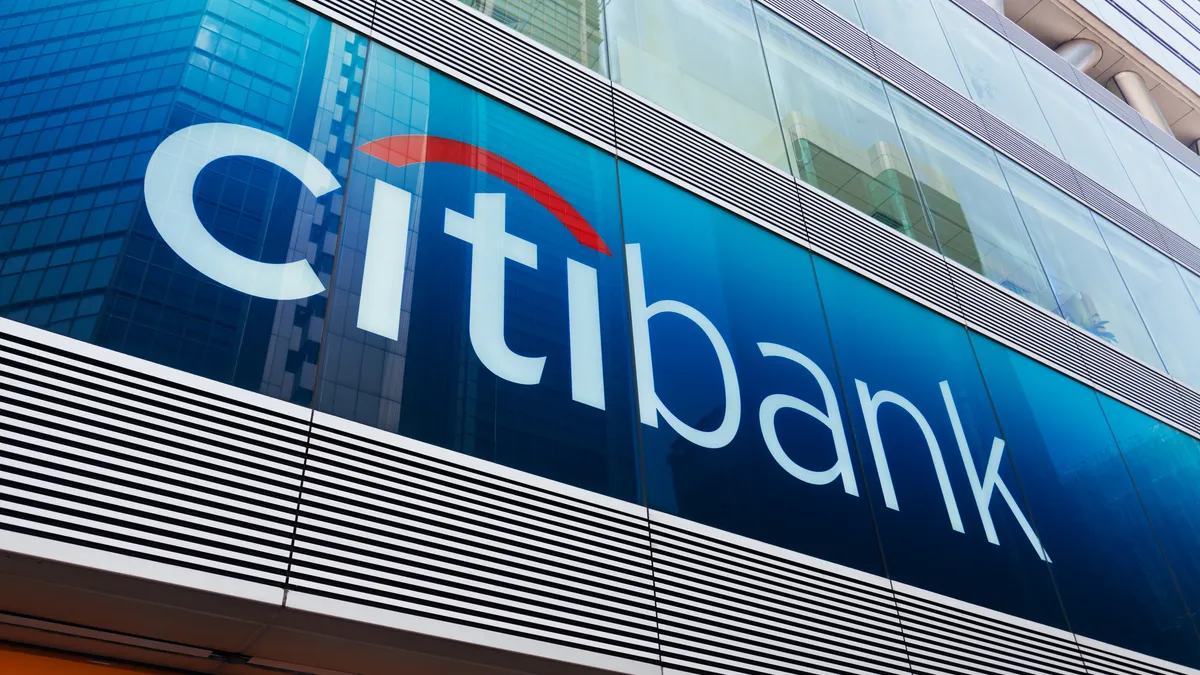Earlier this week, Citi launched a new equity investment fund focusing on "double bottom line" private sector companies that positively impact society. At $150 million, the Citi Impact Fund is the largest initiative of its kind created by a bank using its own capital.
Citi launched the fund as another way to provide capital to private sector companies that focus on overcoming societal and community challenges. Citi will not be raising money from investors or using client assets for this fund.
"The concept of shareholder primacy has been challenged, and people are increasingly using social impact as an important lens when looking at their portfolios," Ed Skyler, Citi's executive vice president of global public affairs, told Banking Dive in an email.
This month, McKinsey & Company published a report that opened with, "pressure on companies to pay attention to environmental, social, and governance (ESG) issues continues to mount."
The McKinsey survey states 57% of executives and investment professionals believe ESG programs create shareholder value. Only 3% believe it reduces value, and 14% are unsure — a significant drop from 25% who reported being unsure of this in 2009.
Environmental programs have the most perceived long-term value, with 93% in agreement, followed closely by social and governance programs. C-level executives now follow suit — which was not the case in 2009.
With a "double bottom line" company — or DBL — investors look at the company’s mission and potential impact, not simply the company’s financial returns. But it goes beyond perception, however. When analyzing hypothetical mergers and acquisitions, experts across the board anticipate having to pay a 10% premium for companies with good ESG track records. Over a quarter believed these companies could command a 20-50% premium.

With its new fund, Citi plans to invest in U.S.-based companies — up to $10 million each — addressing and combating issues across four socially-driven focuses: workforce development, financial capability, physical and social infrastructure and sustainability.
To meet Citi’s investment criteria, companies must be in the later-stage/growth phase, where they have demonstrated a proof of concept, built an existing customer base and secured prior rounds of funding. Citi will also look at the proven potential to scale and convertible debt investments.
Citi spent two years developing this fund, which is a collaboration across many internal teams including Citi Ventures and Global Spread Products. A significant amount of that time was spent meeting with the Treasurer and Risk teams, as well as establishing internal managerial infrastructure and creating a preliminary pipeline of companies to consider for investing.
"The Citi Impact Fund fits perfectly in the bulls-eye of our mission to promote growth and economic progress," Skyler said. "We’re making equity investments in companies addressing four areas of focus — workforce development, financial capability, infrastructure and sustainability — areas that we are already engaged in from a business and philanthropic perspective."
Citi has earmarked a smaller portion of the fund for early-stage seed investments allocated exclusively for businesses run by women and minority entrepreneurs.
"We also know that the gender and ethnic gap in the startup world is very real, with a small fraction of venture capital funding being allocated to women and minority-owned startups. Our aim is not only to help these businesses scale and thrive, but to also shine a light on the investment opportunities among this pool of often overlooked, high-potential entrepreneurs," Skyler said.
In a time when social responsibility and philanthropic awareness have permeated all aspects of daily life, it's unsurprising Citi's fund has already struck a chord. While the bank has yet to publicly report with which companies it has chosen to work, Skyler said an announcement is forthcoming.
"It’s been satisfying to see the overwhelmingly positive feedback to the launch of the fund. We received questions about taking outside money for the fund, which we won’t — but that’s a clear signal of the investor appetite for this type of investing," Skyler said.










